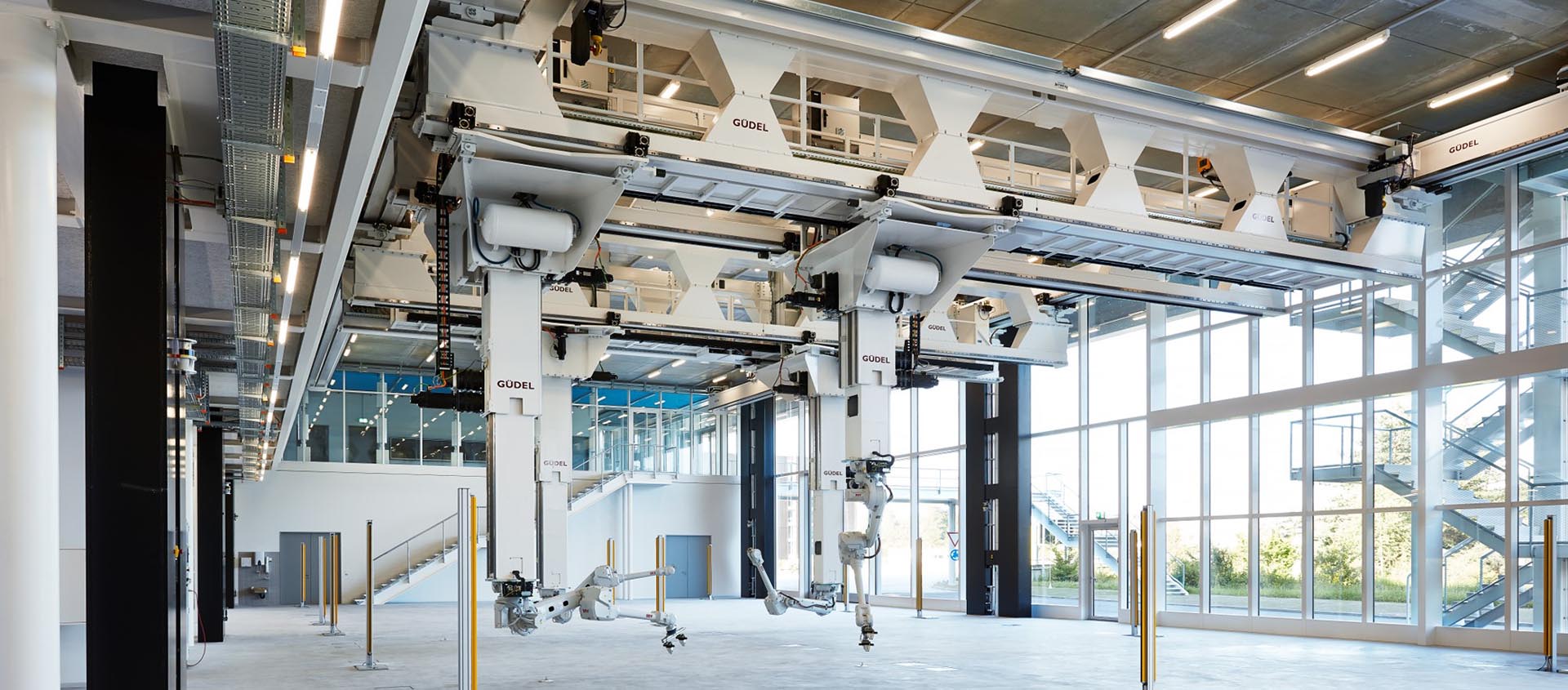
Full Workshop 2
Description
In this workshop, our aim is to join simple timber beams into highly informed and complex spatial structures that follow a specific constructive assembly logic. We will take advantage of the ability of cooperating robotic arms to position, orient and join timber elements, investigate different spatial arrangements and determine the solution space of what is physically buildable with the aid of robotic simulation and path-planning algorithms. Using the workspace of the Robotic Fabrication Laboratory (RFL) at ETH Zurich, we will work directly at a 1:1 scale and physically realise a large architectural artefact.
This workshop builds upon previous research conducted at Gramazio Kohler Research:
- https://www.youtube.com/watch?v=jA9lJDZuYNk
- http://www.gramaziokohler.arch.ethz.ch/web/e/lehre/260.html
- http://www.gramaziokohler.arch.ethz.ch/web/e/forschung/311.html
We strongly encourage the participants to join the pre-workshop compas_fab, as we use this library throughout the workshop.
Instructors
Andreas Thoma, Matthias Helmreich, Matteo Pacher, Aleksandra Anna Apolinarska, and Ammar Mirjan (Gramazio Kohler Research, ETH Zurich)
Learning goals
The participants will engage in a) hands-on making, b) computational design and c) robotic fabrication. They will explore the constraints of the constructive system in an intuitive manner. By manually cutting, placing and joining elements, it will become evident where robotic fabrication will expand the design space, and it will provide an understanding of how the timber beams can geometrically meet each other, considering the fidelity of the later robotic fabrication. During this workshop, we will provide algorithmic design tools (e.g. multi-robotic sequencing, collision detection and path planning) that incorporate the geometric interdependencies and the specific robotic fabrication constraints. Finally, we will fabricate a structure with two cooperating robotic arms. The participants will get an insight into the control of the robots (e.g. multi-robotic coordination, grippers as well as drilling and milling end-effectors, etc.) and their periphery (e.g. CNC-saw, tool changer and correction system, etc.).
Requirements
- Basic scripting skills (preferably in Python and Grasshopper) and proficiency in 3d-modelling (in Rhino)
Duration
3 days
Number of participants
12




